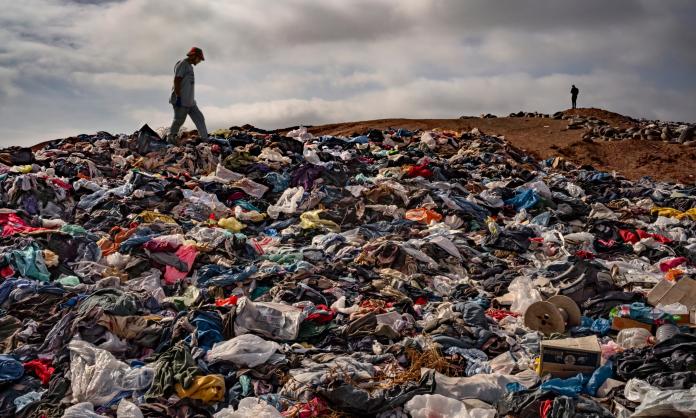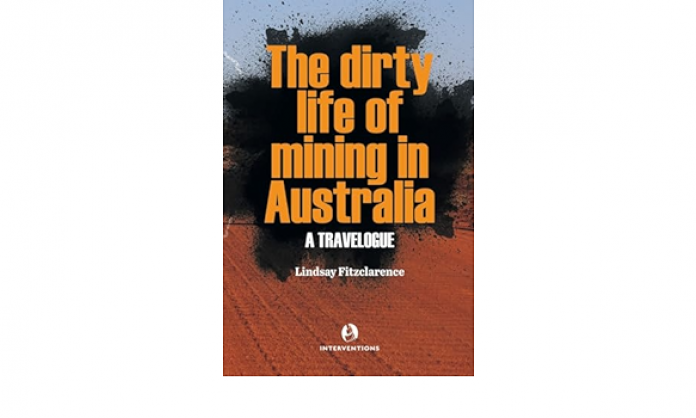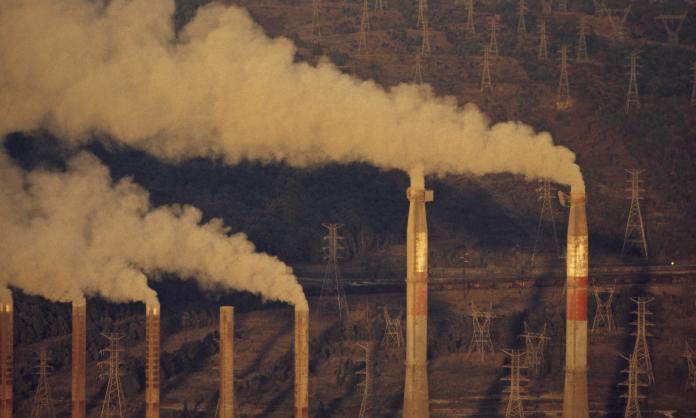There’s a major greenwashing event taking place in Australia. After decades of attacking the climate movement, the Liberal Party and the Murdoch press have—so they tell us—finally seen the light, jumped aboard a newly minted “green and gold” bandwagon, and set course for “net zero by 2050”.
The Herald Sun and other News Corp tabloids went all out in early October with a 16 page wrap-around supplement spruiking the wonderful opportunities presented by the push for a greener Australia—part of the company’s broader “Mission Zero” campaign. Contained within were stories about how new green developments will mean a massive boost to the economy, a piece celebrating former British Prime Minister Margaret Thatcher’s supposed green credentials and an FAQ section which, funnily enough, is focussed on allaying the kind of concerns that (who knows why?) regular News Corp readers have likely had about climate action up to now: Will it lead to blackouts? Will my power bill go up? Isn’t climate change natural?
Of course it’s no coincidence that the News Corp campaign coincides with a significant shift in rhetoric from Scott Morrison and other Liberals. When there’s an election looming, you can expect the editorial line of the Murdoch press (as if by magic) to suddenly fit more or less perfectly with whatever pitch the conservative side of politics has decided might swing a few votes its way.
So it is, this time, with climate change. Morrison—a man who wasn’t even convinced of the need for more serious climate action after watching much of Australia be consumed by fire in the Black Summer of 2019-20—is a sudden enthusiastic convert to the country setting itself a binding “net zero by 2050” emissions target.
How should climate activists understand this? It’s true there’s been a shift in attitudes towards climate change among a section of Australia’s ruling class. They can see the global push for emissions reductions could offer some significant opportunities for profit for first movers in the green economy. The enthusiasm of the likes of mining magnate Andrew “Twiggy” Forrest for things like green hydrogen isn’t based on any purely moral commitment to sustainability. There’s potentially a lot of money to be made by those offering “green” products and services in a world where projecting a green image is increasingly crucial for big business.
Even the Business Council of Australia (BCA)—which in 2018 described Labor’s then 2030 emissions reduction target of 45 percent as “economy wrecking”—recently announced its own commitment to “net zero”.
When you look beyond the rhetoric, however, you see the green economy they envisage isn’t meant to replace the existing, fossil-fuel guzzling “brown” economy, but merely to offset it. There’s very little talk, in the BCA’s glossy plan for Achieving a Net Zero Economy, of actually cutting Australia’s production of fossil fuels. There’s a lot of talk, meanwhile, about the supposed potential of offsetting schemes like carbon capture and storage.
The Australian ruling class believe they can have their cake and eat it too. By getting behind a long-term “net zero” target, they can both ensure they don’t miss out on any profits to be made from the demand for low and negative emissions technologies and products, and continue, for the foreseeable future, to reap the (much greater) benefits that flow from being among the world’s biggest producers of fossil fuels. We can expect that, in the coming years, whatever happens on the green side of this equation will be promoted to high heaven by business leaders, politicians and the media, while the massively more substantial (and profitable) “brown” economy will go on, as before, quietly in the background.
Morrison rightly sees an opportunity in refashioning himself as the political frontman for this plan. Having cut a deal with the few remaining recalcitrants in the Nationals, he can go to the COP26 summit in Glasgow and strut the world stage as part of the fashionable “net zero by 2050” club. On his return to Australia, he can expect to be feted by a highly credulous media, and then roll on into an election campaign in which his new green sheen is likely to play well at the polls.
To the extent that anyone much gets sucked in by this, it will be a setback for the climate movement.
Morrison’s “net zero” hype is just another con by a master climate criminal—a strategy (as the likes of Murdoch and the BCA are no doubt well aware) for kicking the can another decade or so down the road. Previously Morrison and his friends at News Corp tried to do that by dismissing climate activists as crazed extremists and denying there was anything to worry about. Now they’re trying to do it by adopting a “net zero” target that’s set so far in the future, and rests so much on offsetting rather than actually cutting emissions, that it will allow the business as usual of fossil capitalism in Australia to continue more or less unimpeded for at least the next decade.
Under the “net zero” plan, what’s on offer isn’t a transition to a genuinely green economy. What’s on offer is the same old dirty brown economy with a coat of green paint.
“Net zero by 2050” targets aren’t going to save us from climate catastrophe. The climate crisis is already here, and it’s rapidly getting worse. Under Morrison’s big-business-backed plan, the mining magnates can continue to collect their mega-profits while the rest of us face an increasing level of destruction from heatwaves, drought, bushfires, floods, cyclones and rising seas. We need to fight to force a rapid and real reduction to zero emissions—not in 2030, not in 2050, but now.
As we emerge from the discomfort of lockdowns, we need to reignite the climate movement. Our political leaders—whether on the Liberal or the Labor side—can’t be trusted. No-one is coming to save us but us.
Around the world, climate activists will be protesting on Saturday, 6 November, as part of the COP26 Coalition’s global day of action for climate justice. In Australia, the protests are being organised by Uni Students for Climate Justice alongside other activist groups. That’s the first step. We need mass protests and mass disruption to stop the business as usual of the fossil fuel economy. We can’t let the greed of the wealthy few destroy the planet that we all depend on. COP26 won’t—as British Prime Minister Boris Johnson claimed—be a “turning point for humanity”, but the climate movement can be.
Anneke Demanuele is the National Convenor of Uni Students for Climate Justice










